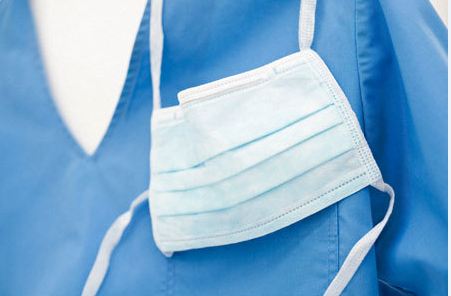Researchers have developed a special salt treatment that can make common surgical masks capable of trapping and killing airborne viruses.
“Surgical masks were originally designed to protect the wearer from infectious droplets in clinical settings, but it does not help much to prevent the spread of respiratory diseases such as SARS or MERS or influenza,” said Hyo-Jick Choi, Professor at University of Alberta in Canada.
Airborne pathogens like influenza are transmitted in aerosol droplets when we cough or sneeze. The masks may well trap the virus-laden droplets but the virus is still infectious on the mask. Merely handling the mask opens up new avenues for infection.
Even respirators designed to protect individuals from viral aerosols have the same shortcoming — viruses trapped in respirators still pose risks for infection and transmission.
The new study, published in the journal Scientific Reports, showed the potential of a salt treatment to improve the efficacy of the fibre filter inside the masks.
Ironically, the inspiration for the new solution came from a problem that the researchers faced while developing oral vaccines.
A major hurdle in the development of oral vaccines is that when liquid solutions dry, crystals form and destroy the virus used in vaccines, rendering the treatment useless.
In this study, Choi flipped the problem on its head and turned crystallisation into a bug buster, using it as a tool to kill active viruses.
Choi and his team developed a salt formulation and applied it to the filters, in the hope that salt crystals would “deactivate” the influenza virus.
The mechanics of simple chemistry make the treatment work, the researchers reported.
When an aerosol droplet carrying the influenza virus contacts the treated filter, the droplet absorbs salt on the filter.
The virus is exposed to continually increasing concentrations of salt. As the droplet evaporates, the virus suffers fatal physical damage when the salt returns to its crystalised state, the study said.—IANS
Image: Alamy
